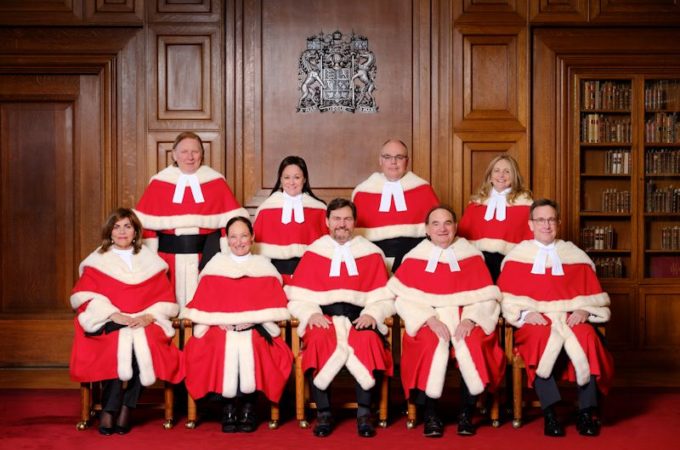The Supreme Court of Canada has given its blessing to Henson Trusts (fully discretionary trusts set up to not impact the beneficiary’s social assistance benefits) in S.A. v. Metro Vancouver Housing Corp., 2019 SCC 4. I previously blogged about this case when it was before the Court of Appeal.
The Metro Vancouver Housing Corporation (the “Landlord”) provides affordable rental housing in Vancouver. The Landlord requires prospective tenants to provide evidence of their income and assets. The Landlord also offers a rental subsidy to some (not all) tenants. However, in order to be considered, according to the residential agreement the tenant must have less than $25,000 in assets, including “assets in which you have a beneficial interest.” Even if a tenant meets the threshold there is no guarantee of a subsidy. The appellant, S.A. (the “Tenant”), is a tenant of the Landlord since 1992 and was a recipient of the subsidy. She is also a person with a disability. Every year she was required to verify her assets for the subsidy.
When the Tenant’s father died he left her a third of the residue of his estate. The Tenant went to court to vary her father’s will to place her share of the estate in a fully discretionary trust. The Tenant and her sister were co-trustees of the trust. The trust was drafted in such a way that it could not be collapsed pursuant to the rule in Saunders v. Vautier.
The Tenant informed the Landlord about her discretionary trust but stated that it was not an asset that would affect the subsidy. She noted she had received nothing from the discretionary trust since its inception. The Landlord countered that it needed this information to come to a determination. As the Tenant would not provide information, the Landlord revoked her subsidy.
The Tenant and the Landlord both went to court for a decision. The lower court judge dismissed the Tenant’s proceeding and granted the relief sought by the Landlord. His Honour found that the Tenant had a beneficial interest in the trust and, as such, had to disclose information on the trust to the Landlord.
The Tenant appealed to the British Columbia Court of Appeal. The Court of Appeal found that while the Tenant may not have a vested interest in the trust, she clearly some form of beneficial interest. Ultimately, the court found it did not have to opine on how this interest should be valued (or even if it could even be valued): if the Tenant wished to apply for the subsidy she must disclose the amount of the trust. The Landlord would then have to decide how it would take this information into account in determining if the Tenant was eligible for the subsidy.
The Supreme Court of Canada allowed the appeal. The Supreme Court found that the Tenant’s interest in the trust was a “mere hope” as there was no obligation for the trustees to give her any distribution. The fact that the Tenant was also a trustee of the trust was irrelevant: she always needed to have a co-trustee and had to make decisions as a trustee in compliance with her fiduciary obligations.
The Supreme Court interpreted the term “asset” in the residential agreement to mean “property or interest(s) in property that can actually be used to discharge his or her debts and liabilities, including the monthly rent.” Given that the Tenant’s interest in the trust was fully discretionary, she was not actually enriched by having an interest in the trust and – as such – could not actually use the trust to discharge her liabilities. The Supreme Court therefore decided that the Tenant’s interest in the trust was not an “asset” under the residential agreement. While the Tenant had an obligation to provide information about the structure of the trust (which she did) she had no obligation to give any information about the size of the trust.
In coming to this conclusion, the Supreme Court favourably cited the original Henson decision – the first time that the Supreme Court had done so. The Supreme Court noted that its decision should not be construed as stating that social assistance programs were barred from considering Henson trusts. Each social assistance program should be analyzed on its own terms.
While the Supreme Court was unanimous with respect to the nature of the Tenant’s interest in the trust, it split 7-2 about the consequences that flowed from this determination.
The majority found that while the Landlord had no obligation to give any tenant the subsidy, it did have an obligation to consider giving the subsidy to the Tenant. It remitted the matter to the trial level court, to determine what damages would put the Tenant in the position she would have been in if the Landlord had considered her application for a subsidy (instead of demanding information about her trust as a precondition). This was not, the majority stressed, an opportunity for the court to determine what it thought she should have received. The two partial dissenters argued that as there was no duty to provide a subsidy, retroactive damages should not be contemplated.
The Supreme Court has provided helpful guidance on the nature of Henson trusts and affirmed that this planning tool can be used to assist people with disabilities. I correctly predicted in my previous blog that “It is doubtful that the Supreme Court of Canada will want to use this case to jeopardize Henson trusts…” However, my crystal ball was a little murkier when I went on to say the court would not “explore the thorny issue of the valuation of interests in discretionary trusts.” Drafters and beneficiaries of Henson trusts must be happy that the Supreme Court was bolder than I thought it would be.


0 Comments